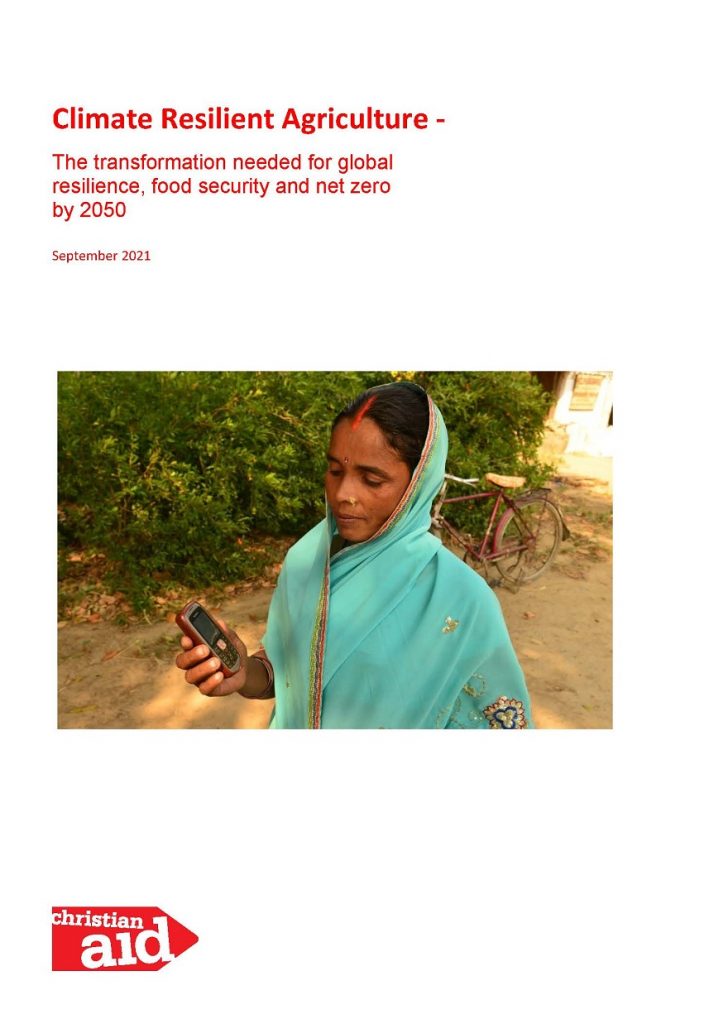Ahead of the UN Food Systems Summit starting today (September 23), Christian Aid have published a report highlighting the damage that conventional farming is doing to the climate and soil systems upon which humanity relies.

The report highlights how an increasingly intensive food system based on the use of synthetic chemical inputs such as fertilisers and pesticides has driven up emissions, degraded soils and is the main driver of biodiversity loss.Despite the claims of the chemical industry that they are essential to higher yields and food security, in fact the opposite is true with agroecological approaches such as organic farming and agroforestry increasing productivity and resilience, reducing emissions and drawing carbon back into soils and trees more effectively than any alternative
The report’s findings include:
- A study on agroecology across 57 countries, found increased productivity on 12.6 million farms with an average crop yield increase of 79%.
- Food production contributes a third of global greenhouse gas emissions and reducing this rapidly will be vital if we are to reach net zero by 2050.
- This is compounded by the intense cultivation of soils that releases carbon into the atmosphere and the clearance of forests and the loss of their vital carbon absorbing capacity.
- Nitrate fertilisers are particularly damaging, releasing both methane and CO2 in their production, generating 1.4% of global emissions. After they are applied to the soil, they are also the main source of nitrous oxide, which accounts for a further 6%.
- Only about 17% of nitrate fertiliser ends up in food – the rest generates greenhouse gases, dangerous particulates and stratospheric ozone loss. It washes into groundwater from where it pollutes rivers and deoxygenates seas.
- Globally, about 385 million cases of unintentional acute pesticide poisoning occur annually, 11,000 of these resulting in death. This means that 44% of farmers are acutely poisoned every year, with the largest numbers in South Asia, followed by South-East Asia and East Africa.
- A frequent critique of organic farming methods is that it would result in a drop in productivity and yield with claims a growing global population needs 70% more food which can only be provided by increasing chemical inputs.
- In reality the global food system already produces enough food for 10 million people, more than the expected population in 2050. But it is so inefficient 30% is lost or wasted through neglect of product storage (13.8%) or by households (17%).
- A consequence of this is that 8-10% of global emissions are associated with food that is never eaten.
- Food quality has also fallen. Since the adoption of chemical inputs in the 1930s, the concentration of essential minerals such as calcium and iron has been decreasing in both fruit and vegetables. A meta-analysis of 343 peer-reviewed publications focusing on the quality of organic vs chemically produced food found “statistically significant and meaningful differences in composition between organic and non-organic crops/crop based foods.”
- Agroecology can also help reverse the biodiversity crisis a recent study found was “primarily driven” by the global food system. A literature review of 396 comparisons found that organic systems were more biodiverse in 80% of cases – on average, organic farming increased species richness by at least 30%.





